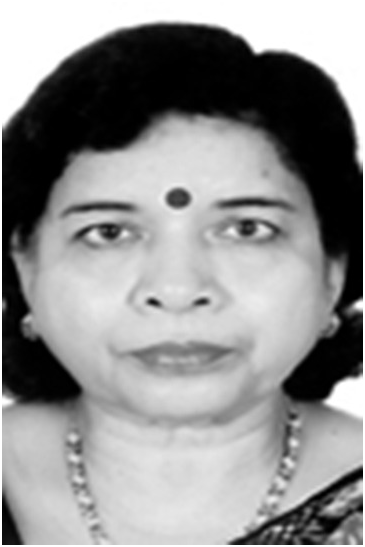Crossing Disciplinary Boundaries
from Section 1 - The Underpinnings of Sex and Gender and How to Study Them
Published online by Cambridge University Press: 20 July 2020
“Women’s Studies, Gender Studies, Feminist Studies,” with the theme of the subordination of women, is marked by diverse and overlapping intellectual traditions and movements. We take a non-Western perspective of this diversity. We use the terms interchangeably, as in the historical development from the earlier focus on Women’s Studies and more recent shift to Gender Studies in the West as well as in third world Women’s Studies, these disciplines have a close relationship with Feminism and the Women’s Movement and have gained from each other.The chapter covers issues including the Women’s Movements, Women’s Studies/Feminism, the different waves of feminism, feminist perspectives, feminist research / feminist methods, objectivity for feminist research and feminist theories. We cover theory and method for social science in general, but there is a section that features psychology specifically and highlights the different strands of feminism.
Rekha Pande is the Head and founding member of the Centre for Women’s Studies and a Professor and former Head of the Department of History at the University of Hyderabad, India. She was also the founding member of the Center for Women’s Studies at Maulana Azad National Urdu University. She chaired the 12th Women’s World Congress in India, 2014. She has been a visiting Professor at University of London, University of Bristol, University of Buffalo, Maison de Research, Paris, and University of Artois. Her work is in the interdisciplinary area of history and women’s studies. She has published eighteen books and over a hundred papers and chapters in national and international journals, proceedings and books. She has been the editor of International Feminist Journal of Politics (IFJP) and Foreign Policy Analysis. Pande was born in northern India in the Himalayan region of the present state of Uttrakhand. As her father was an Indian Army officer who was posted every three years, she grew up in different states of India. During the early stage of her career, she spent summer and winter vacations visiting her husband who is a scientist working in Zambia, Zimbabwe, and Uganda. She now spends her summers visiting her children who have settled in the United States.
Wen Liu is Assistant Professor of Women’s, Gender, and Sexuality Studies at University at Albany, State University of New York. Liu is currently working on a book titled Assembling Asian American: Psychological technologies and queer subjectivities, where she draws from queer theory, affect, and diasporic postcolonial studies to examine how psychology as a scientific discipline has created Asian Americanness as a measurable, biocultural population through a Eurocentric gaze. Her research has been published in internationally recognized journals such as Feminism & Psychology, Subjectivity, American Quarterly, and Journal of Asian American Studies. She is currently co-editing a special issue on “Feminisms and decolonizing psychology” for the journal Feminism & Psychology. Liu was born in Taipei, Taiwan, and moved to the USA when she was 16 where she studied and stayed on for her career. She still strongly considers herself as a Taiwanese person politically, and identifies as a queer person of color.
Hsunhui Tseng is Assistant Professor in the Gender Studies Programme at the Chinese University of Hong Kong. Her research interests include globalization, marriage and family, transnational migration and human trafficking, student mobility, gender, class and race, identity politics, Taiwan, China, Hong Kong, and Southeast Asia. She is working on a manuscript tentatively titled Stratified foreign bodies: Commodified transnational marriage and the brokerage industry in Taiwan. Her works appear in journals such as Asian Anthropology, Cross-Currents: East Asian History and Cultural Review, and Hong Kong Journal of Social Sciences. The courses she teaches at CUHK cover feminist methodology, gendered migration in Asia, family and society, and the intersectionality of gender, sexuality, and race throughout the world. Tseng was born in Taiwan where she attended her undergraduate studies and then went to the United States where she obtained her master’s and PhD degrees at the University of Washington, Seattle. She is currently a single mother working in Hong Kong.
To save this book to your Kindle, first ensure no-reply@cambridge.org is added to your Approved Personal Document E-mail List under your Personal Document Settings on the Manage Your Content and Devices page of your Amazon account. Then enter the ‘name’ part of your Kindle email address below. Find out more about saving to your Kindle.
Note you can select to save to either the @free.kindle.com or @kindle.com variations. ‘@free.kindle.com’ emails are free but can only be saved to your device when it is connected to wi-fi. ‘@kindle.com’ emails can be delivered even when you are not connected to wi-fi, but note that service fees apply.
Find out more about the Kindle Personal Document Service.
To save content items to your account, please confirm that you agree to abide by our usage policies. If this is the first time you use this feature, you will be asked to authorise Cambridge Core to connect with your account. Find out more about saving content to Dropbox.
To save content items to your account, please confirm that you agree to abide by our usage policies. If this is the first time you use this feature, you will be asked to authorise Cambridge Core to connect with your account. Find out more about saving content to Google Drive.


